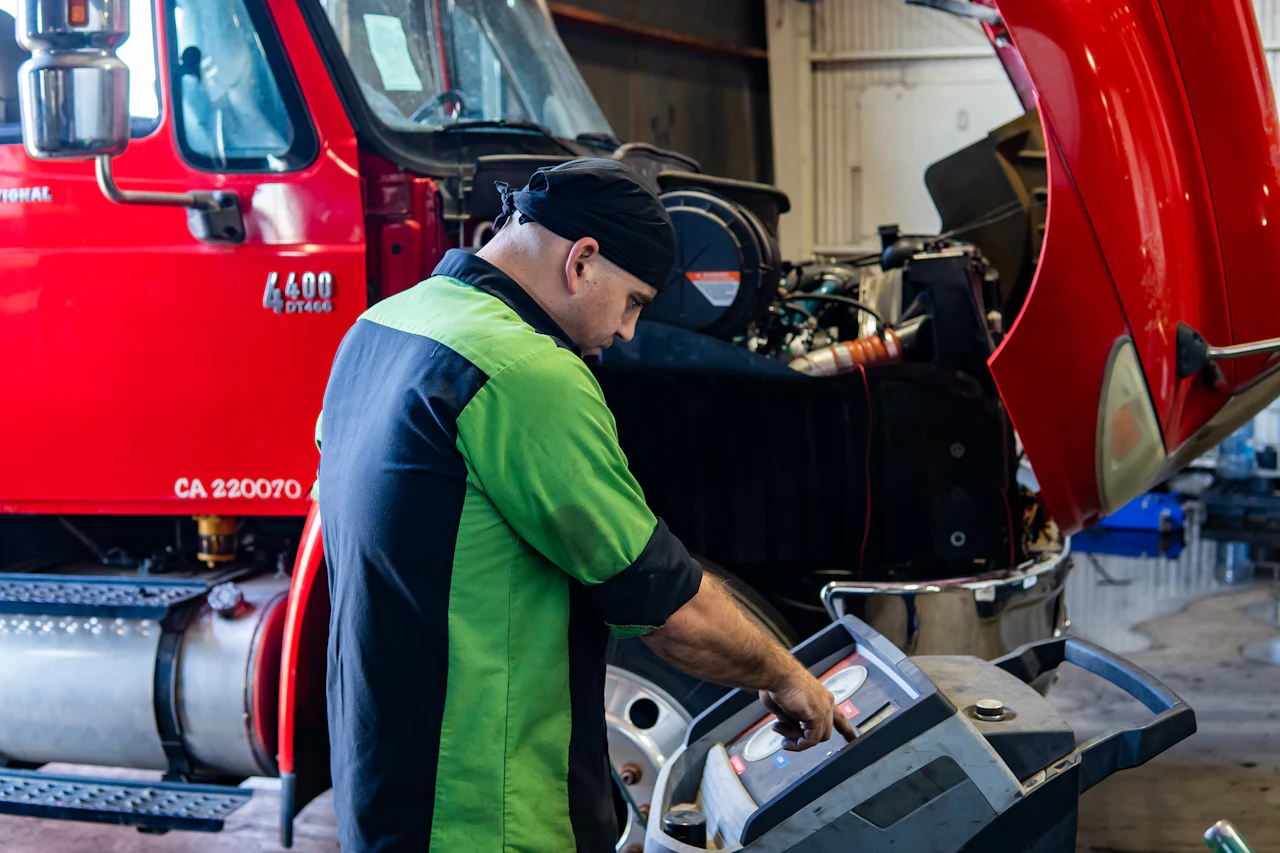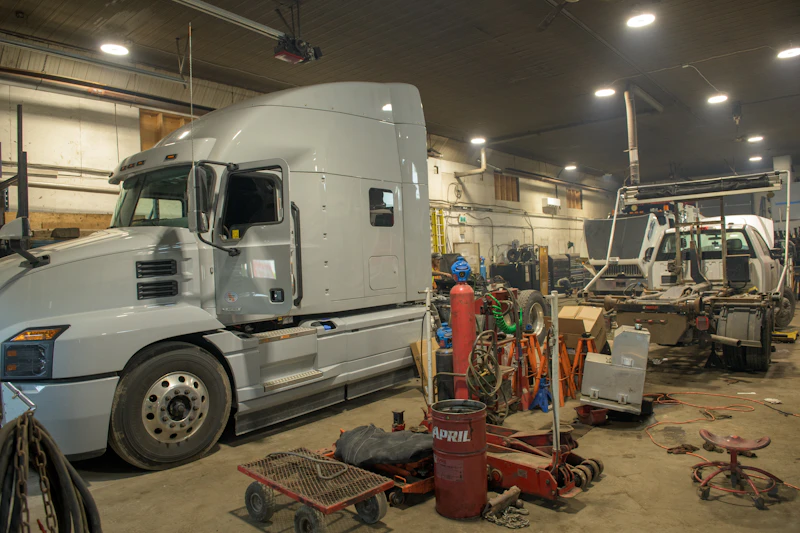Why Your Heavy-Duty Truck's A/C Isn’t Cooling Properly and What You Can Do About It

Why Your Heavy-Duty Truck's A/C Isn’t Cooling Properly and What You Can Do About It
When that Texas heat starts blistering, the last thing you want is your rig’s A/C giving you the cold shoulder—without the cold. You twist the knob, crank the fan, and all you get is lukewarm disappointment. We’ve all been there. But here's the thing: your A/C isn’t just a comfort feature; it’s a critical component for long-haul performance. Let’s dig into why your heavy-duty truck’s A/C might not be cooling like it used to—and more importantly, how to fix it.
The A/C System—More Than Just Cold Air
Let’s peel back the dash and get to the guts of it. Your A/C system is a closed-loop circuit, running refrigerant through several major components:
- Compressor: Pressurizes the refrigerant and sends it into the system.
- Condenser: Releases the heat from compressed refrigerant (mounted in front of your radiator).
- Receiver-drier or accumulator: Removes moisture and filters out debris.
- Expansion valve or orifice tube: Reduces refrigerant pressure before it hits the evaporator.
- Evaporator: Absorbs heat from the cabin air as refrigerant evaporates inside it.
Common Reasons Heavy-Duty Truck A/C Systems Fail
There’s no single smoking gun when it comes to A/C failure—it’s a cocktail of wear, grime, and neglect. If your truck’s blowing warm air and smells like a damp basement, odds are your evaporator coil's in trouble too.
Common reasons you may encounter A/C failure include:
- Low refrigerant: Just like your engine needs oil, your A/C needs refrigerant to cool the air. If you’re low, it won’t chill properly—period.
- Faulty compressor: This is the heart of the system. If it goes bad, refrigerant won’t circulate.
- Clogged cabin air filter: These filters catch all sorts of debris—and if they’re clogged, airflow suffers.
- Electrical issues: Blown fuses, bad relays, or worn wiring can cut power to critical A/C components.
- Leaks: From O-rings to hoses, your system is sealed tight—until it isn’t.
Signs Your Truck's A/C is About to Tap Out
Don’t wait for the dog days of summer to get caught in a sweat lodge on wheels. Watch out for these early warning signs:
- Weak airflow from the vents, even on high
- Warm air when the A/C is cranked
- Unusual noises—clicking, grinding, or squealing
- Moisture or frost on the interior vents
- Burning or musty odors
- The A/C cycling on and off rapidly
How to Troubleshoot an A/C System in a Heavy-Duty Truck
A basic inspection can save you from a wallet-draining repair down the line. Always wear protective gloves and eyewear when handling refrigerant—it’s no joke.
Here's where to start:
- Check refrigerant levels with a gauge set.
- Inspect belts and pulleys for cracks or excessive slack.
- Look for oil stains around A/C lines (a tell-tale sign of a refrigerant leak).
- Test electrical connections to the clutch, fan, and pressure switches.
- Examine the condenser and radiator fins—dirt or damage here can stifle airflow.
- Run a diagnostic scan to check for HVAC fault codes if you’ve got a modern rig.
Preventive A/C Maintenance Tips for the Long Haul
They say an ounce of prevention is worth a pound of freon. Here’s how to keep your system humming:
- Replace the cabin air filter every 15,000–20,000 miles.
- Keep your condenser fins clean and straight.
- Run the A/C regularly—even in winter—to keep seals lubricated.
- Have your system vacuum tested annually for leaks.
- Top off or replace refrigerant per manufacturer guidelines.
A proactive approach keeps your A/C system icy cold and your downtime minimal.
Book Your A/C Repair at Saviors Repair Today
If your A/C’s on the fritz and the Texas heat is bearing down, don’t wait until it’s unbearable. At Saviors Repair, we specialize in heavy-duty A/C diagnostics, repairs, and recharge services. Whether it’s a minor leak or a full compressor replacement, our certified techs will get your cab chilled again. For more information about A/C systems, read our article on quick HVAC fixes that keep your cab cool.

.webp)

.webp)